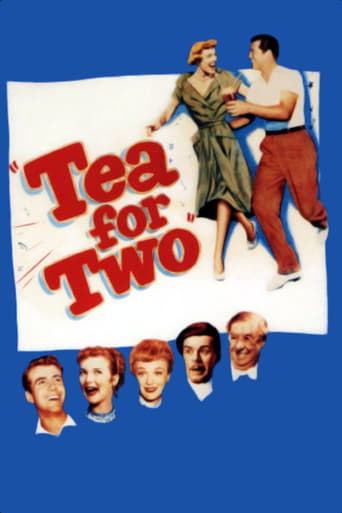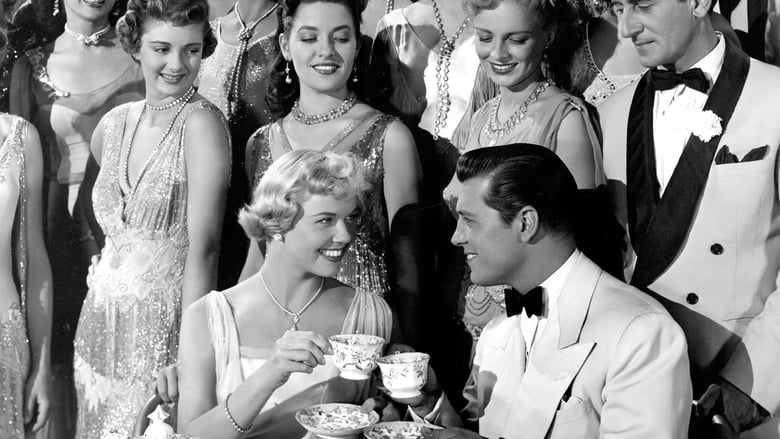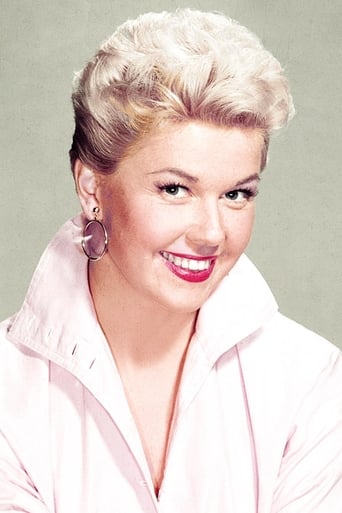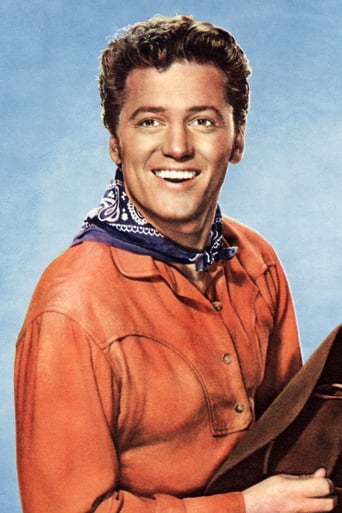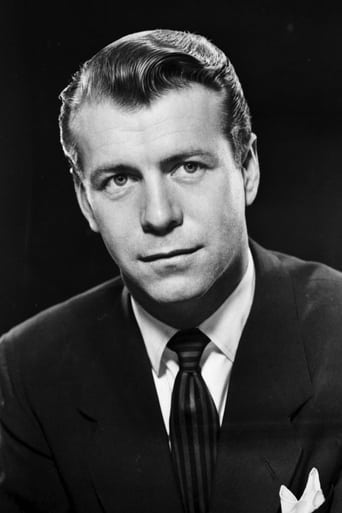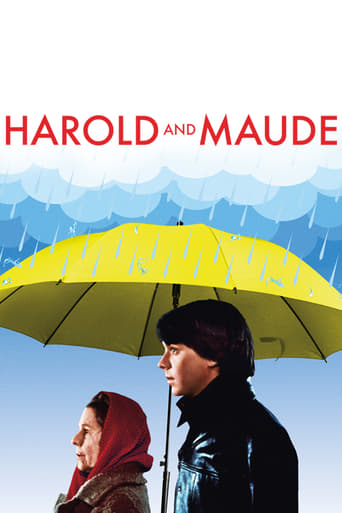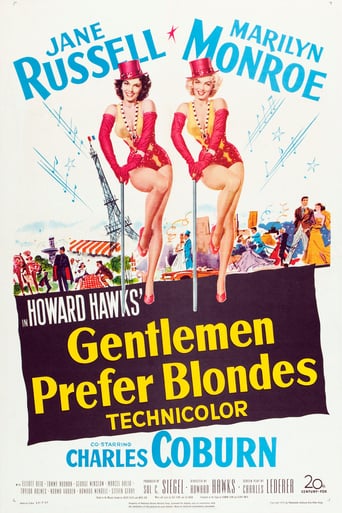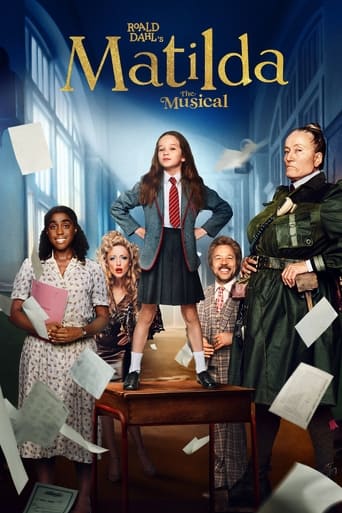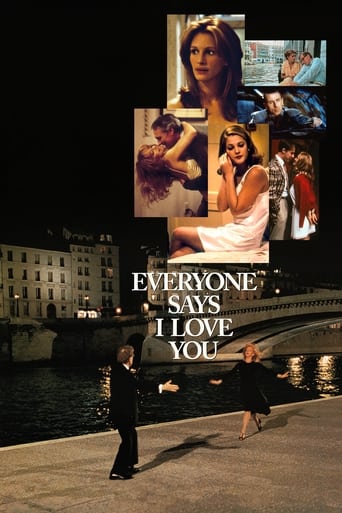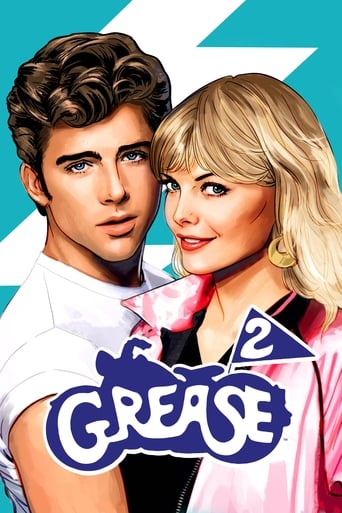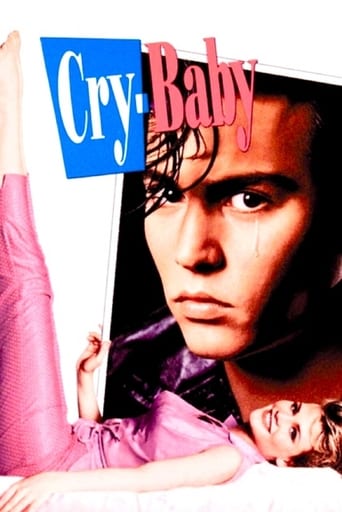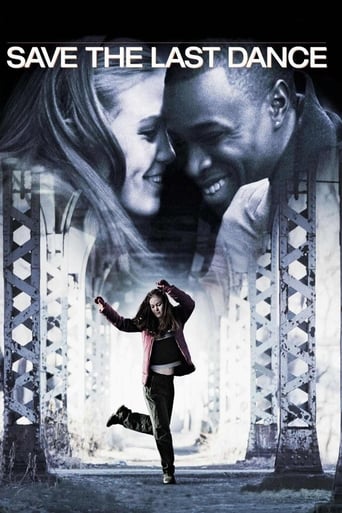Tea for Two (1950)
In this reworking of "No, No, Nanette," wealthy heiress Nanette Carter bets her uncle $25,000 that she can say "no" to everything for 48 hours. If she wins, she can invest the money in a Broadway show featuring songs written by her beau, and of course, in which she will star. Trouble is, she doesn't realize her uncle's been wiped out by the Stock Market crash.
Watch Trailer
Cast


Similar titles
Reviews
As many other reviewers have said, I cannot fault this movie or similar movies of its kind from that era. I'm glad these wonderful singers/actors have passed (most of them) and aren't around to see the trash that is now. Thank you for the wonderful films you made that continue to be a pleasure to watch. People who lived then we're so lucky. Sheer beauty and talent. Thank youJust picture fun for everyone A joy for you its tea for two :) for capturing and rapturing romance. You'll love the charms of our own Doris Day and popular songs sung by Gordon Macrae :) while gene nelson dances and eve Arden glances :)
Tea for Two (David Butler, 1950) - I like Doris Day, but her cheery singing and cartoonish sensibility can't save this average musical, which is hamstrung by excessive comic relief, an unsuitable setting (the onset of the Great Depression - what an amusing scenario) and characters it's very difficult to root for. The set-up is this: Day dreams of being a Broadway star, and will get her big break if she can win a bet with uncle S.Z. Sakall to say "no" to every question she's asked for 36 hours. Not only do the writers fail to mine this promising premise to convincing dramatic ends, but they hardly wring any laughs out of it either. It's left instead for Billy "Oh no, not Billy De Wolfe" De Wolfe to provide the comic relief, which is not a situation I would like to revisit any time soon.The lack of thought that went into the script is epitomised by the staggeringly artless way a gaggle of fun late-'20s songs are crowbarred into the narrative. Still, the film is lit by that good score, much of it performed by frequent co-stars Day and Gordon McRae, and some impressive hoofing from Gene Nelson - with his staircase dance the obvious high spot. Terence Davies' favourite character actress, Eve Arden, snipes agreeably in support. Tea for Two is based on the stage musical No, No, Nanette (filmed in 1930 and 1940), which is the show-within-a-film here.
In her fifth movie, Doris Day finally achieved top-billing, yet she shares the screen equally with a talented ensemble cast, with everyone working hard to inject some sparkle into a wafer-thin concoction. Inspired by the 1920s stage hit "No, No, Nanette" (itself filmed in 1940), this plays out as sort of the backstage story, with Doris betting her wealthy uncle that she won't say 'yes' for 48 hours in exchange for show-money. Unbeknownst to her, uncle S.Z. Sakall has been nearly ruined by the 1929 stock market crash which, incidentally, hasn't kept all the hoofers from hanging up their tap shoes (they're the merriest group of poor, working dancers I've ever seen!). Pleasant tunes, colorful costumes and fun dance routines (including a hair-raising bit with Gene Nelson on a staircase) can't really add excitement to the proceedings, which seems to have been made as a matinée quickie. Day shines (as usual), but her relationships with the men (Nelson, Gordon MacRae, and Billy De Wolf) are unclear, with De Wolf in particular a real wild card (would you believe him as a ladies' man stage producer?). Eve Arden has some funny asides, and the wrap-up is cute, but "Tea for Two" vanishes from the cup just as quickly as it is poured. ** from ****
Before getting into the issues of musical score, cinematography, cast, direction, and storyline, one has to always bring in some baggage with "Tea For Two" (known on stage as "No No Nanette!"). Supposedly baseball team impresario and theatrical producer Harry Frazee, in an effort to raise the cash for a new musical with music by Vincent Youmans, sold his best player on the Boston Red Sox, George Herman "Babe" Ruth, to his friend Col. Ruppert of the New York Yankees, thus guaranteeing New York would dominate baseball for the next century while Boston came close but never got the gold ring (despite Ted Williams and others). Since the start of the present century Boston has won the World Series twice, whereas the Yankees have not won any. One can safely say the so-called "curse of the Bambino" is dead. But I wish to add, you may hate Frazee as much as you want for trading Ruth and several other great players to New York. But the money went into other productions he was pushing, not "No No Nanette." The musical came about four years after the stupid trade of Ruth. So this is not a case of Boston's loss was the gain of Vincent Youmans fans.The musical has been remade three times, with this version in 1950, starring Doris Day, Gordon MacRae, Eve Arden, Gene Nelson, S.Z. Sakall, and Billy De Wolfe. The 1950 version, re-entitled "Tea For Two", was directed by David Butler, and is considered the best of the three. It does contain the big two hits by Youmans from the show ("Tea for Two" and "I Want to be Happy"), but it also has tunes by the Gershwins and others, including Harry Warren and Al Dubin (this is a Warners Brothers film, and they got full use of tunes like "I Only Have Eyes For You!").The production is very nice in terms of color film stock, and scenery (particularly a 1929 style mansion). But best is the acting - the cast is not only good, but as the material is good the cast does very well with it.Day is a stage struck heiress living with her Wall Street broker uncle Sakall. She was left a fortune by her father, but Sakall is her guardian and is in charge of the fortune. Unfortunately he invested the money (despite the advise of his lawyer Bill Goodwin) in stock instead of stable but small return government bonds. Comes the crash and Sakall has lost his money (although he still has much of potentially valuable stock) as well as all of Day's. The plot concerns how Day is being pursued by De Wolfe for financial assistance in floating his Broadway production of "No No Nanette". De Wolfe, in his career, frequently played unlikeable types - either sneering know-it-alls (wherein he was a younger "Clifton Webb" type, without Webb's actual wisdom), or semi-conman (like the minstrel performer in "Dixie" with Bing Crosby). Nobody likes De Wolfe (Day has already had some history with him and is waiting for him to repay a $10,000.00 loan). Even Sakall can't stand him. But he is the man heading the production. He is trying to get Day's backing, but trying to somehow convince his girlfriend/leading lady (Patrice Wymore) to give up the lead to Day. Wymore has history with the choreographer (Gene Nelson) but has thrown him over for De Wolfe (however she is increasingly regretting this error). Gordon MacRae is the songwriter on the show, and dislikes the lies De Wolfe spreads about his family's health and need for medical care - lies that De Wolfe uses to try to pry cash out of Day). MacRae also is falling for Day (and she certainly likes him). Through a complicated mistake Day agrees to a wager with Sakall: she will not answer any question with a "Yes" for 48 hours, and if she doesn't she will be given the $25,000.00 for the show. However, if she does say "Yes" she can't spend any money for one year. So the plot keeps following moments when Day has to disappoint people by denying any question (even when she plans the reverse). On the other hand, Sakall, knowing there is no money, tries again and again to get her to say "yes". At one point, when trying to make an appointment, Sakall's crazy wager works against him when the negative Day annoys a motorcycle cop who arrests them both.This plot may sound trite, but musical comedy plots were frequently like that in the 1920s. I may add that the crazy balancing act between Day and Wymore that De Wolff is forced to go through is funny, as is the typically cynical comments of Day's secretary and friend (Eve Arden) on the antics of the others, and belatedly her own attempts at romance.It actually works - a good musical which entertains, which is the purpose of most musicals. It's nice to recall that there was a time when our musical theater was welcomely naive and pleasant - not the musical of thought and discussion of the 1950s and 1960s - not the musical of the age of Sondheim, but only the musical of the age of Youmans, Gershwin, and Berlin.

